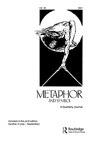Individual Differences in Verbal Irony Use: A Systematic Review of Quantitative Psycholinguistic Studies
IF 3.3
3区 文学
0 LANGUAGE & LINGUISTICS
引用次数: 1
Abstract
ABSTRACT We carried out a systematic review of psycholinguistic, empirical, quantitative studies on verbal irony use and individual differences (i.e. psychological, not demographic, traits that significantly differentiate individuals). Out of 5,967 publications screened, 29, comprising 35 studies in total, were included. Following a qualitative content analysis, six thematic clusters were identified, representing areas of research in individual differences in irony use: (a) psychological well-being, (b) personality traits, (c) humor-related traits, (d) cultural factors, (e) social skills, and (f) cognitive factors. The results of the studies in each cluster are summarized and conclusions for further research are presented. In particular, the systematic review suggests that irony and sarcasm should be clearly delineated as separate, yet related phenomena due to differing patterns of correlations with specific individual differences. Additionally, significant methodological heterogeneity between the studies suggests the need for greater standardization of irony use measures.言语反语使用的个体差异:定量心理语言学研究的系统综述
本文系统回顾了心理语言学、实证和定量研究对言语反讽使用和个体差异(即个体显著差异的心理特征,而非人口特征)的影响。在筛选的5 967份出版物中,包括29份,共35份研究报告。在定性内容分析之后,确定了六个主题集群,代表了反语使用个体差异的研究领域:(a)心理健康,(b)人格特征,(c)幽默相关特征,(d)文化因素,(e)社交技能和(f)认知因素。总结了各聚类的研究结果,并提出了进一步研究的结论。特别是,系统回顾表明,反讽和讽刺应该被清楚地描述为独立的,但相关的现象,因为不同的模式与特定的个体差异相关。此外,研究之间显著的方法异质性表明需要对反语使用措施进行更大的标准化。
本文章由计算机程序翻译,如有差异,请以英文原文为准。
求助全文
约1分钟内获得全文
求助全文
来源期刊

Metaphor and Symbol
Multiple-
CiteScore
2.90
自引率
0.00%
发文量
23
期刊介绍:
Metaphor and Symbol: A Quarterly Journal is an innovative, multidisciplinary journal dedicated to the study of metaphor and other figurative devices in language (e.g., metonymy, irony) and other expressive forms (e.g., gesture and bodily actions, artworks, music, multimodal media). The journal is interested in original, empirical, and theoretical research that incorporates psychological experimental studies, linguistic and corpus linguistic studies, cross-cultural/linguistic comparisons, computational modeling, philosophical analyzes, and literary/artistic interpretations. A common theme connecting published work in the journal is the examination of the interface of figurative language and expression with cognitive, bodily, and cultural experience; hence, the journal''s international editorial board is composed of scholars and experts in the fields of psychology, linguistics, philosophy, computer science, literature, and media studies.
 求助内容:
求助内容: 应助结果提醒方式:
应助结果提醒方式:


